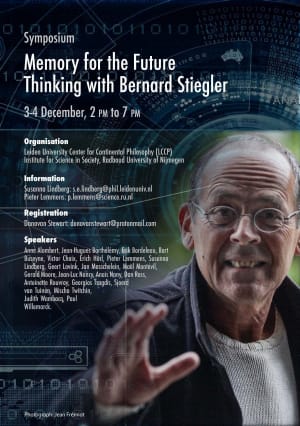
Talks of 2020 in english
-

-

Panel: Towards anti-entropic exorganisms and exorganisations in the anthropocene. Bioeconomics, institutions, localities
Why should we invest in the concept of entropy to face the challenges of the Anthropocene? Of course, entropy production is a more accurate description of physical processes than energy consumption – and the difference between the two concepts has applications. However, entropy has other ramifications. Living beings oppose entropy increase in two different ways. First, as emphasized by Schrödinger, living beings have to sustain a low entropy situation, and this implies that they are local, open systems. Second, while entropy increase leads to more generic configurations, biological individuation brings about the more specific organization, at the scale of evolution as well as shorter time scales. These specific organizations are precisely the way living being delay the increase of entropy. These counter-trends are analyzed as anti-entropy and anti-entropy production, respectively. We will show that they are damaged in the Anthropocene, meaning that biological organizations are disrupted, and their ability to reorganize is also weakened.
-
Non-monotonicity of BPA
In their presentation, the scientists provide background on CLARITY-BPA, the setup of their mammary gland study, and a detailed discussion of the analytical and statistical methods applied. They explain that their study shows clear statistical evidence of non-monotonic dose-response curves (NMDRC) of developmental exposure to BPA for multiple measurements, that such responses occurred at all ages of the animals studied, and argue that additional “mechanistic studies are not needed to accept that a NMDRC reflects a causal link to the exposure when the statistical methods of analysis are pertinent and rigorous.”
-

Workshop: What does it mean for chemicals to be endocrine disruptors?
Since the Wingspread conference in 1991, endocrine disruptors are an active field of research and concern for public health. This workshop aims to discuss the notion of disruption in the context of endocrine disruptors.
-
Conceptual and theoretical specifications towards accuracy in medicine
Technological developments in genomics and other omics methods originated the idea that precise measurements of these biological properties could lead to better therapeutic strategies. However, precision does not entail accuracy. Scientific accuracy requires a theoretical framework to understand the meaning of measurements, the nature of causal relationships, and potential intrinsic limitations of knowledge. For example, a precise measurement of initial position in classical mechanics is useless without a measurement of the initial velocity. Moreover, even in this deterministic framework, precise measurements do not entail predictability in the case of chaotic dynamics. These examples show that conceptual and theoretical accuracy is required for precision to entail progress of knowledge and rationality in action.
We outline our results in search of a theory of organisms. Biology is distinct from physics and requires a specific epistemology. For example, we develop the meaning of biological measurements, where historicity is a fundamental notion. We also emphasize that the historicity of biological norms that stems from evolutionary theory implies that patients and groups of patients can play an active role in establishing new norms to overcome a pathological situation, in line with the philosophy of G. Canguilhem. This dimension of medicine is required for accuracy.




